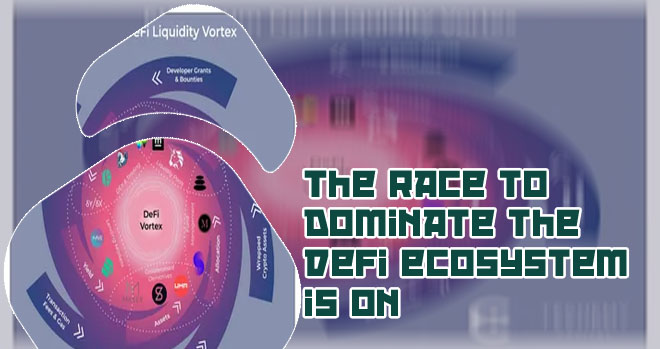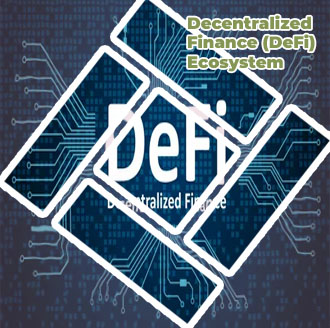
Ethereum defi
Decentralized Finance (DeFi) has been gaining popularity in the cryptocurrency space, with Ethereum being a key player in this emerging financial ecosystem. Understanding how Ethereum DeFi works and how to navigate it is crucial for anyone looking to participate in this innovative sector. To help you navigate the world of Ethereum DeFi, here are three articles that provide valuable insights and tips on how to make the most of this decentralized financial system.
The Ultimate Guide to Ethereum DeFi: How to Get Started and Maximize Your Returns

In the fast-paced world of cryptocurrency, decentralized finance (DeFi) has emerged as a game-changer, offering users the opportunity to maximize their returns through innovative platforms and protocols. For those looking to dive into the world of DeFi on the Ethereum network, "The Ultimate Guide to Ethereum DeFi" is an invaluable resource that provides a comprehensive overview of the key concepts and strategies involved.
One of the standout features of this guide is its clear and concise explanations of complex topics such as liquidity mining, yield farming, and decentralized exchanges. The authors break down these concepts in a way that is easy to understand for beginners, while also offering valuable insights for more experienced users. Additionally, the guide provides step-by-step instructions on how to get started with DeFi on Ethereum, including setting up a wallet, accessing decentralized applications, and maximizing your returns through smart investment strategies.
What sets this guide apart from others in the space is its focus on practical tips and real-world examples. The authors draw on their own experiences in the DeFi ecosystem to provide readers with actionable advice on how to navigate the often confusing world of decentralized finance. Whether you are a newcomer to DeFi or a seasoned veteran, "The Ultimate Guide to Ethereum DeFi" is a must-read resource that will help you unlock
Top DeFi Projects Built on Ethereum: A Comprehensive Overview
Decentralized Finance, or DeFi, has been one of the hottest topics in the cryptocurrency space in recent years. Built on the Ethereum blockchain, DeFi projects aim to revolutionize traditional financial systems by providing decentralized alternatives to banking, lending, and trading services. In this article, we will take a comprehensive look at some of the top DeFi projects that have been built on the Ethereum network.
-
Uniswap: Uniswap is a decentralized exchange (DEX) that allows users to swap various ERC-20 tokens without the need for an intermediary. It uses an automated market-making (AMM) system to facilitate trades, making it a popular choice for traders looking for low fees and high liquidity.
-
Aave: Aave is a decentralized lending platform that allows users to borrow and lend a wide range of cryptocurrencies. Users can earn interest on their deposits and take out loans using their crypto holdings as collateral. Aave has gained popularity for its innovative flash loan feature, which allows users to borrow funds without any collateral.
-
Compound: Compound is another decentralized lending platform that allows users to earn interest on their crypto holdings and borrow assets against their collateral. Its interest rates are algorithmically determined based on supply and demand, making it a flexible option for both lenders
Navigating the Risks of Ethereum DeFi: How to Protect Your Investments and Minimize Losses
As the decentralized finance (DeFi) space continues to grow rapidly, investors are increasingly looking to Ethereum-based platforms to maximize their returns. However, with great potential for profit comes great risk, making it crucial for individuals to navigate the risks associated with DeFi in order to protect their investments and minimize potential losses.
One of the key risks in the DeFi space is smart contract vulnerabilities, which can result in funds being lost or stolen. Investors should thoroughly research the smart contracts of any DeFi platform they are considering investing in, and only use platforms that have been audited by reputable third-party security firms.
Another risk to be aware of is impermanent loss, which occurs when providing liquidity to a decentralized exchange. Investors should carefully consider the potential for impermanent loss before providing liquidity, and be prepared to adjust their strategies accordingly.
Additionally, the volatile nature of cryptocurrency prices can lead to significant losses if not managed properly. Investors should be prepared for market fluctuations and have a clear risk management strategy in place to protect their investments.
To navigate the risks of Ethereum DeFi effectively, investors should diversify their portfolios across multiple platforms and assets, rather than putting all their funds into a single platform. This can help to spread risk and minimize potential losses in the event of a security breach or market